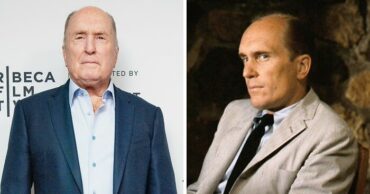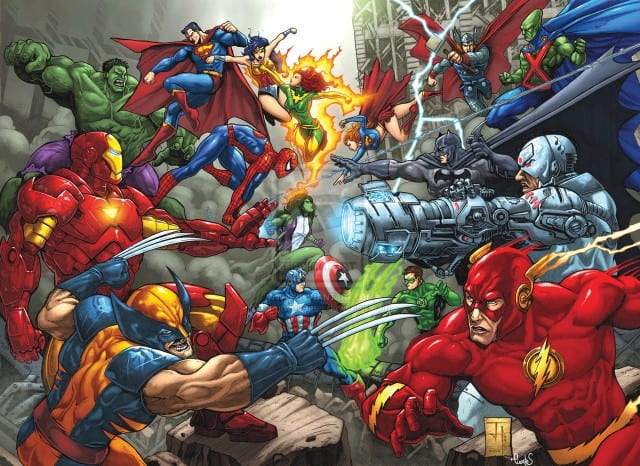
The traditional wisdom of the past decade has held that there is a strict divide between the adaptations of DC and Marvel comics. While Marvel has not been without its fair share of televisual praise, it has dominated the big screen since 2008’s Iron Man. And although DC has had massive success with film’s like The Dark Knight, it has really been its small screen productions that have garnered the lion’s share of its praise.
Every Iron Man has been checked by an Arrow and every Captain America has been duly countered by an Assault on Arkham. While Marvel’s churning hopelessly obscure properties like Guardians of the Galaxy into unprecedented box office juggernauts, DC’s doing the same thing with Suicide Squad on home video.
The thing is, though, that a decade-long status quo has just been shaken up (and Dawn of Justice has nothing to do with it). Despite its late and often lagging start at the medium, Marvel has officially overtaken DC as the premiere provider of small screen superheroics.
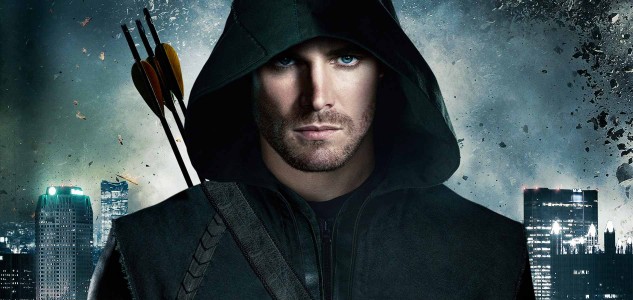
Don’t get me wrong, I still love what DC’s done with their TV properties. Arrow has only improved since its stellar first season. Flash hit the ground running and never slowed down. They’re doing awesome things with crossovers and incessantly fun things with Legends of Tomorrow. The fact of the matter is that Marvel has simply done everything DC has done and better.
When it comes to the shows’ dissemination, Netflix has proven to be the superior platform. Netflix is the new HBO, where series that fall beyond the scope of network television can develop and thrive without the puritanical constraints of more family-friendly networks. It’s a safe haven for mature, violent and — yes — even sexually explicit content.
Arrow is praised at length for essentially being the Batman Begins of network television. It’s a dark, violent series about a man running around a city, shooting (often killing) white collar criminal with a bow and arrow. The thing is, however, that the series has its limits: limits that have become increasingly obvious in recent seasons.
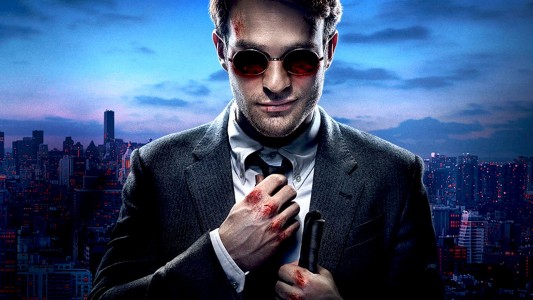
Oliver’s commitment to not killing the criminals of Starling City has ballooned to almost cartoonish proportions, forcing him to go to such excessive extremes to preserve lives that he often risks far greater losses in the process. While an arrow to the heart (or knee) might be the quickest, easiest and surest solution to the problem, he bends over backwards to preserve all life: not within reasonable margins, but literally everybody.
While this does make for a rather dynamic character arc — comparing the Oliver that was to the Oliver that currently is — it comes at the expense of the more immediate concerns of the story, not to mention baseline logic of the series. Despite my concerns, Arrow is still a great show. It features an intricate, years-spanning plot with interesting, well-developed characters with healthy doses of action and intrigue. I can’t help but believe that the deathless direction of the series is more due to network concerns that series ones: mandated from on high rather than organically coming from the needs of the show itself. Give it a year or two and they’ll have Oliver using the infamous boxing glove-tipped arrows from the comics.
Contrast that with Netflix’s Daredevil: essentially a darker, uglier, more violent version of Arrow. Sure, it hasn’t been around nearly as long as the DC series has, but even two short seasons into its utterly brutal narrative and it’s already developed a far more impassioned fan base than its network forebear.
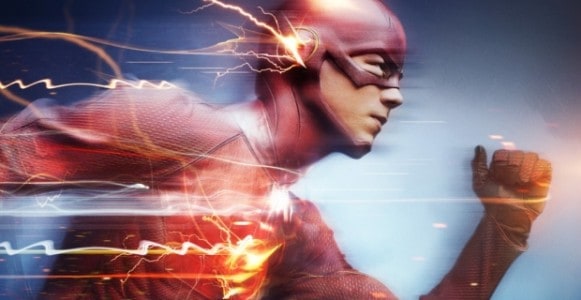
Now, I’m not one to equate popularity as a strict mark of quality. Transformers, although popular, have been thoroughly beleaguered by their atrocious scripts and creative talent. The Simpsons, once the king of television, has been stripped away of its initial vibrancy over the course of the last 27 seasons. I still don’t have the foggiest idea why people care about Supernatural, and that’s in its 11th season.
An even greater mistake that slavishly equating popularity to quality, though, is to utterly disregard that there’s not some kind of connection. Things are popular for a reason. People are drawn toward these narratives for a reason. Their connection is not random, even if it at times it appears to be the case.
Likewise, Daredevil is popular for a reason, and it’s not just its Marvel branding or its titular character. Those didn’t save the abysmal Ben Affleck movie from popular and critical ruination.
Unlike Arrow, Daredevil doesn’t pull any of its punches. It wallows in the violence and gore of Hell’s Kitchen: blue collar criminals, political corruption, claustrophobic slug-fests in dimly lit hallways and organized crime’s desperate bid for control of the city.
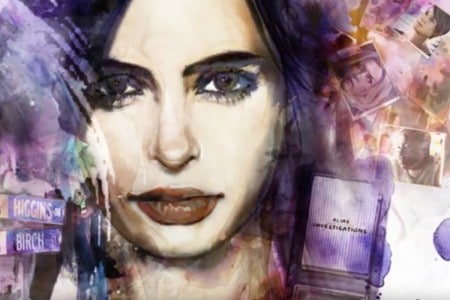
It seems almost identical to Arrow on its surface. Switch up the power sets, change out a few characters, rename the city and you basically have the same Johnny-come-lately story about a wounded man trying to save his city from the squalor in which he left it.
The difference between the two series — the real, substantive difference — is that Network executives haven’t focus-grouped the edge out of Matt Murdock. Rather than mandating a new direction for the character (because Network TV is, and will remain, Network TV), series creator Drew Goddard is allowed to take the character in organic and increasingly interesting directions.
Yes, Daredevil doesn’t kill. That’s true. But he also doesn’t try to reinvent the wheel of vigilantism by risking everybody for the sake of some faceless somebody. The series makes the moral question of Daredevil’s actions the core of the series.
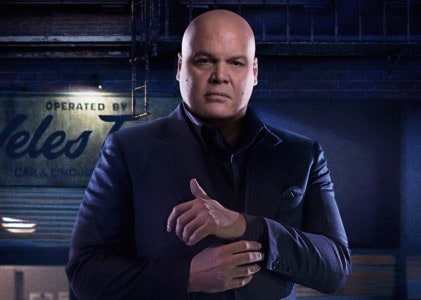
Between Matt’s confessions, the police’s growing concerns of spreading vigilantism and the introduction of the Punisher, we are openly invited to judge the merits of a Daredevil in the first place, rather than trying to force him into becoming something that he’s not. Daredevil — both the character and the series — is allowed to be Daredevil.
A second advantage that the break from tradition network television affords the series is brevity. While I love a good, long series as much as the next guy, the concision of a 13 episode season versus a 23 episode season allows for a far less padded narrative.
The reason why I never got into otherwise popular series like Naruto has less to do with its prodigious length than the fact that so overwhelming much of it was filler: designed not to develop characters or advance plot, but tread water until the source material caught up to the series. Arrow — or any DC series, for that matter — doesn’t have the same problem of extensive, filler-laden arcs, but it doesn’t seem to have a problem of padding out its narrative to a full series length.
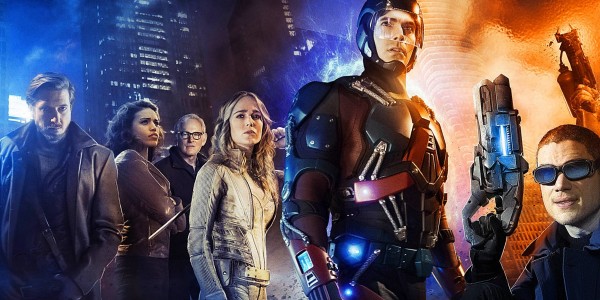
So many episodes, while still serviceable in their own right, are clearly designed to stretch out a finite amount of story a further than necessary: teasing us along to that golden number of 23. It’s not that Daredevil loses anything by being ten episodes shorter each season. It just carves out the chaff. It gives us a singular story that is no longer — nor shorter — than it needs to be.
What’s more is that the shorter episode length actively draws in high-end creative talent. Asking an A — or even B — list actor to sign on for a full 20-odd episode season is a major commitment in their time. There’s a reason why you rarely see big movie talents crossing over to the small screen. It’s just not worth it, no matter how attractive the role.
But a 13 episode season? That’s another matter entirely. That’s manageable when you have to juggle multiple acting commitments. That’s attractive for the right project, or for the right role. That’s why you see an actor of Vincent D’Onofrio’s caliber as the Kingpin. That’s why you see David Tennant crossing the pond to play Killgrave. Shorter, more focused projects draw high-end talent like flies to honey.
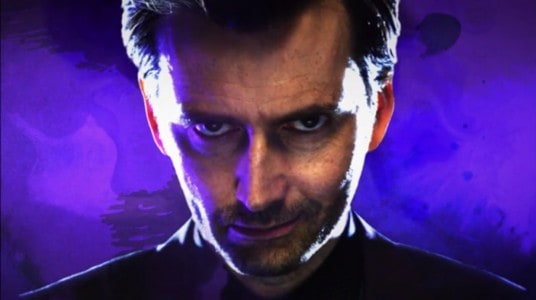
That’s not even touching on what’s perhaps the most singularly important distinction between Daredevil — or Jessica Jones — and any of DC’s series: they’re canonically connected with Marvel’s Cinematic Universe. A role as Kingpin on Daredevil could easily translate to a role as Kingpin in Spider-Man. It’s a gateway to high-profile movie deals, which is an attractive (not to mention lucrative) avenue for an actor to take.
Beyond using its big screen connections to attract A-list talent, it provides audiences with a proper view into the universe they love while being in-between movies. I can tune into Agents of S.H.I.E.L.D. to get an idea of what to expect out of the upcoming Inhumans movie. I can stream Daredevil to see what’s going on between when Ant-Man was released and when Civil War comes out. I can check out Luke Cage or Iron Fist and wonder how — or if — it will all come together in Infinity War.
That’s a level of inter-connectivity that DC’s projects simply can’t compete with. Imagine if Margot Robbie was introduced as Suicide Squad member Harley Quinn in Arrow, of if it was Grant Gustin showing up in the Dawn of Justice teaser for Flash instead of that creepy kid from We Need to Talk About Kevin. It would sure have me a lot more excited about the DC Cinematic Universe than Batman vs Superman made me.
 Follow Us
Follow Us


